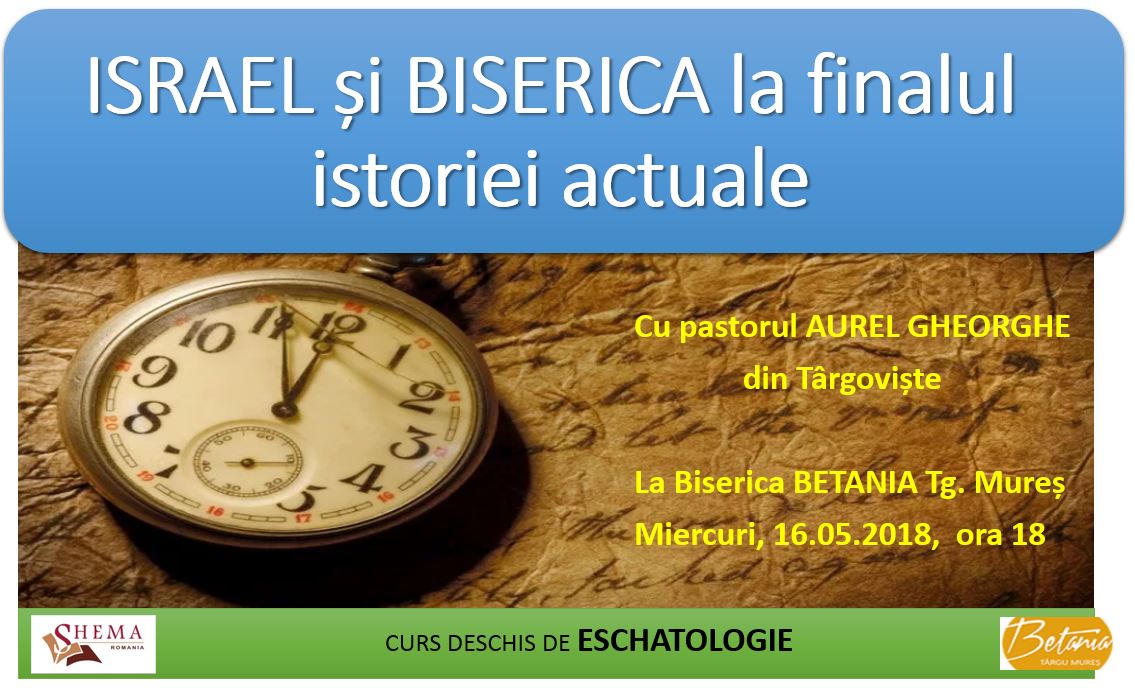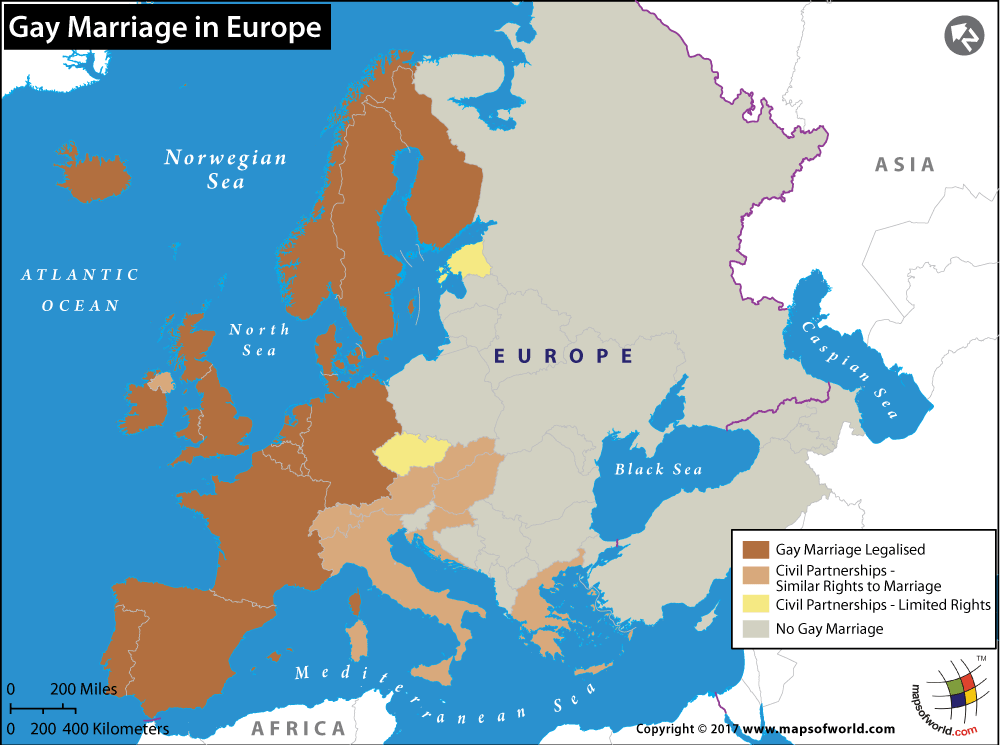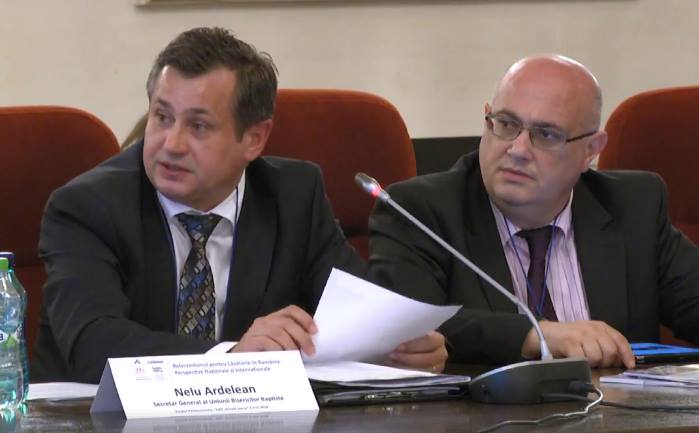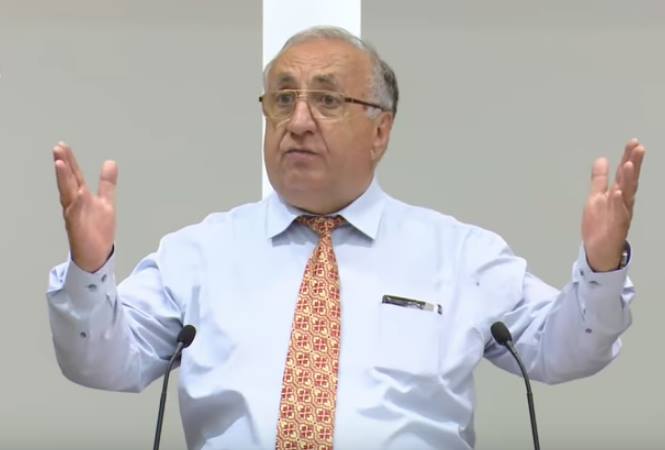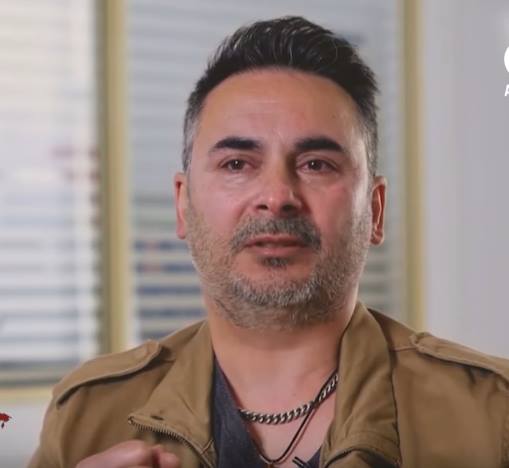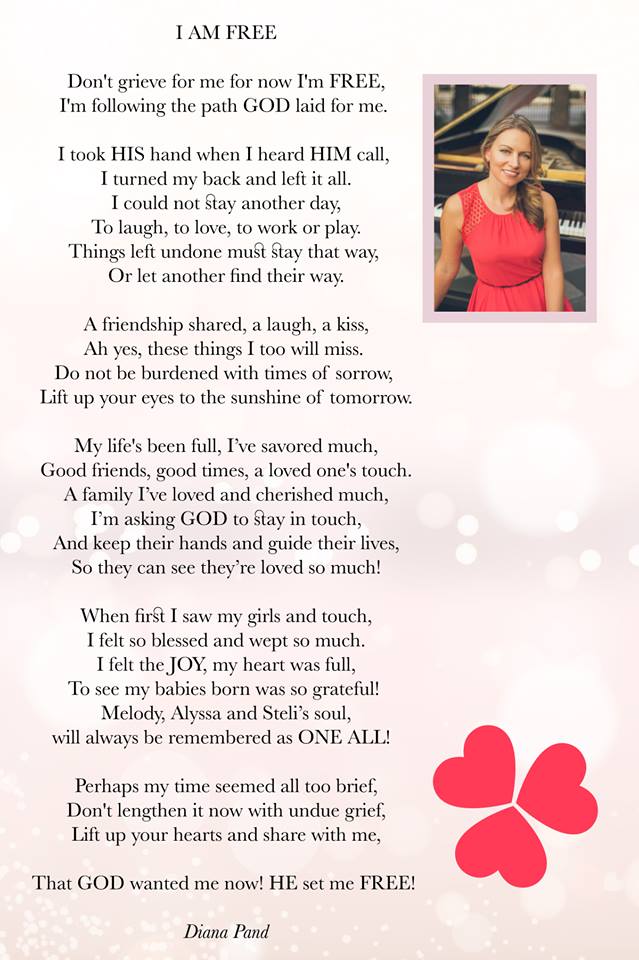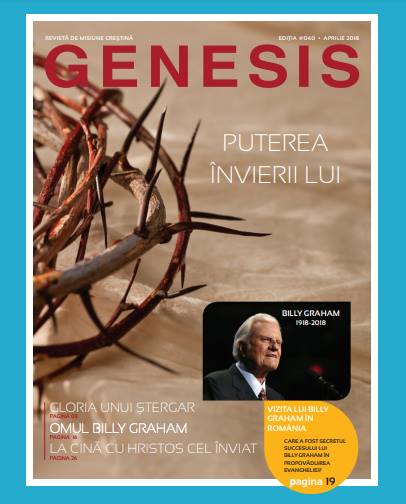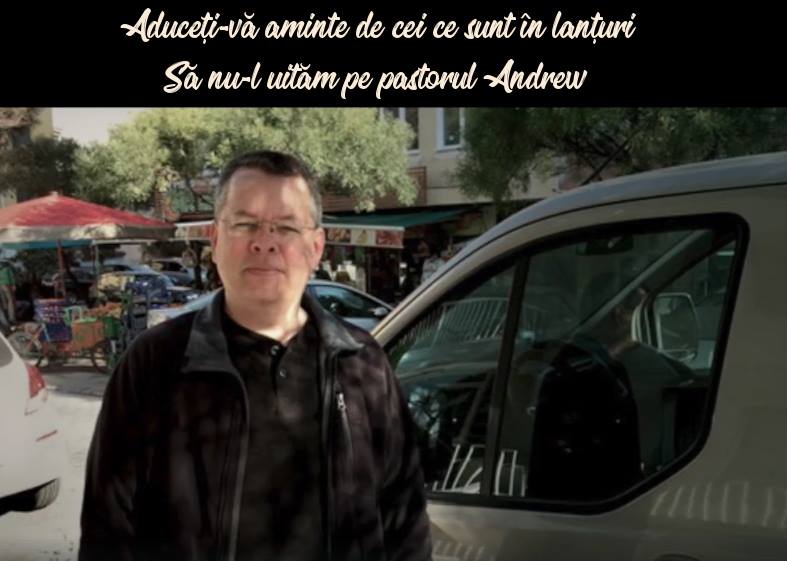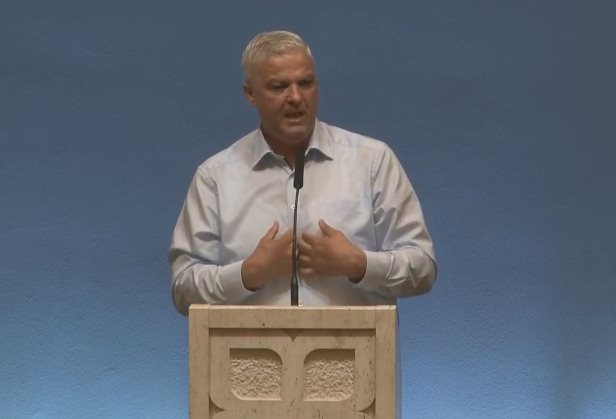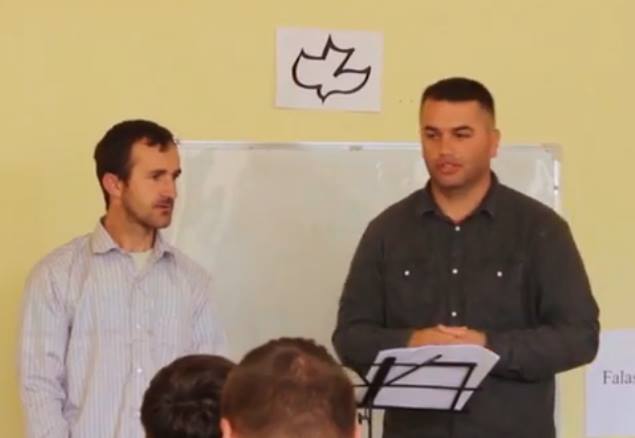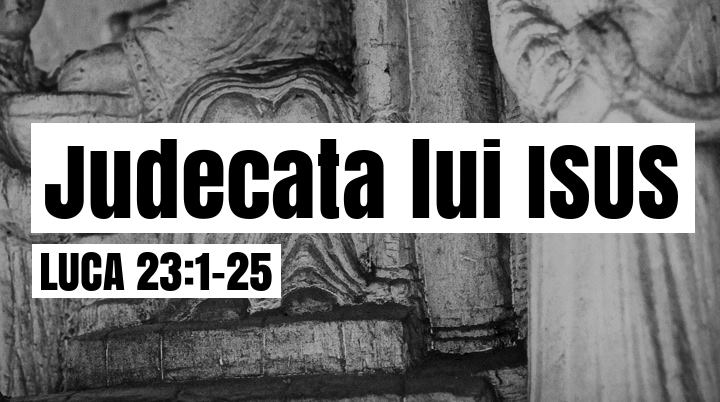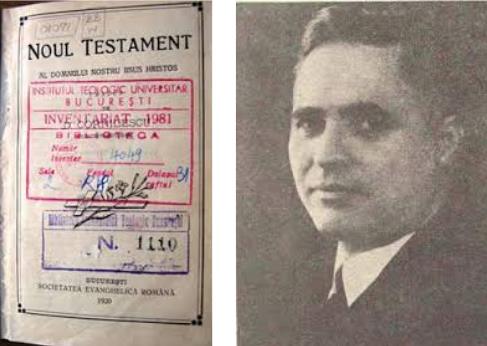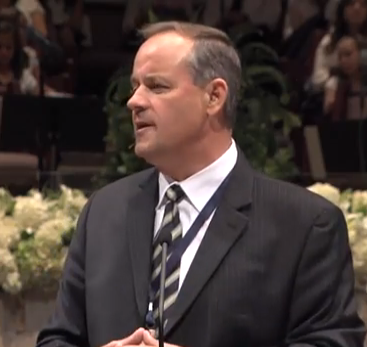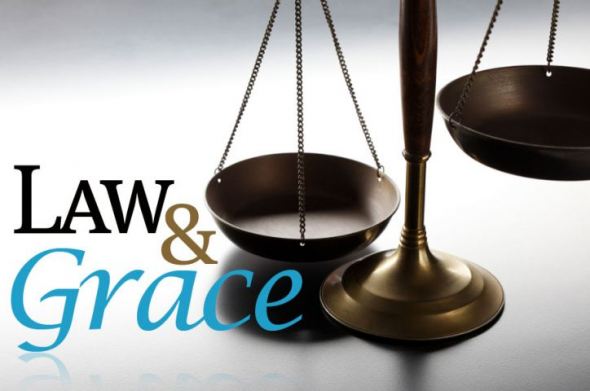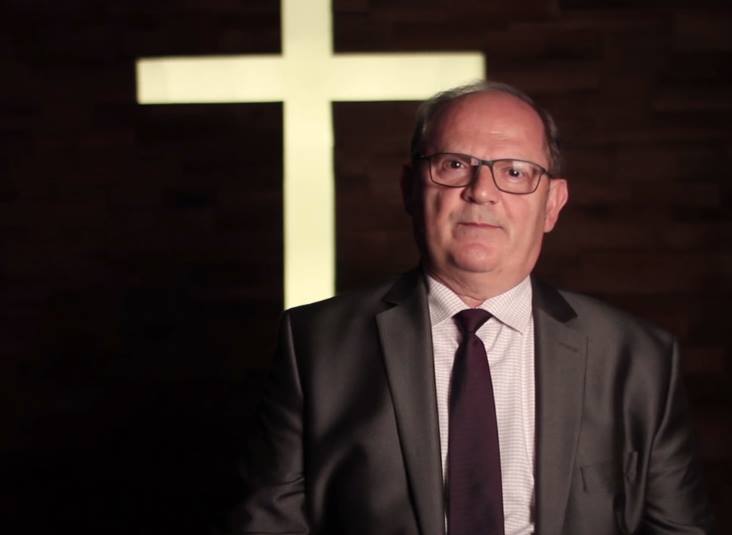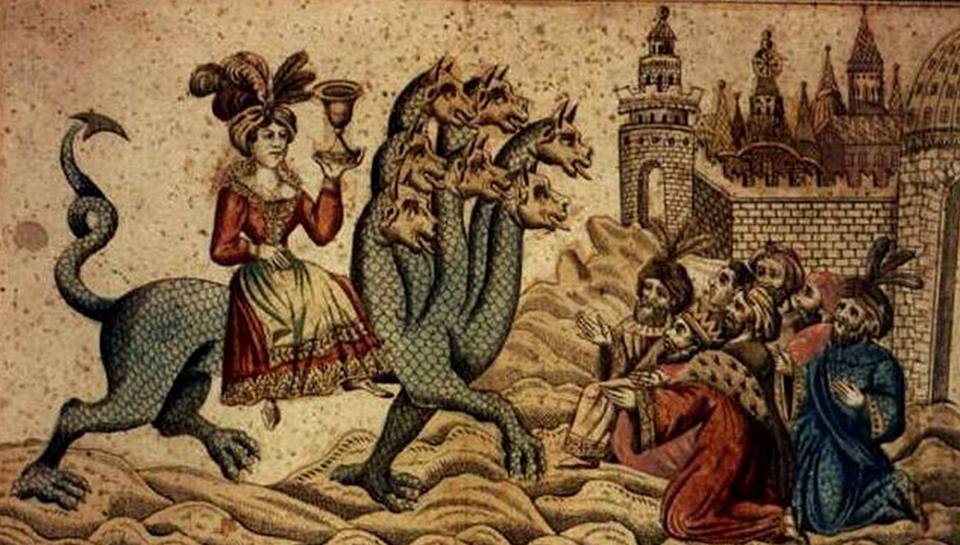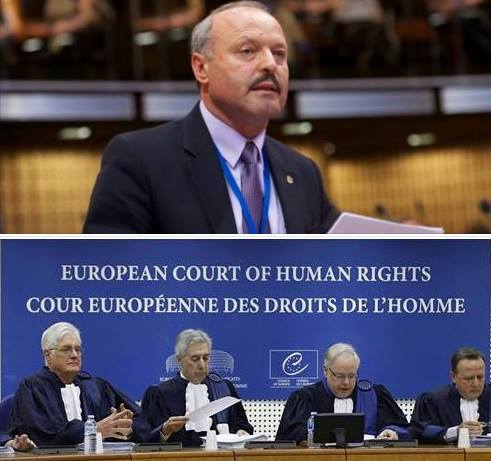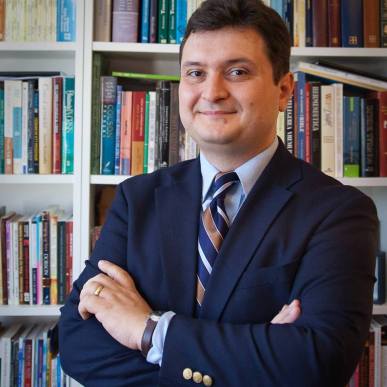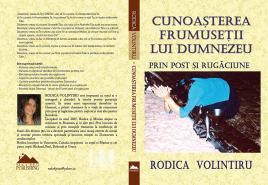de Friedhelm König
 Un petic de pînză cenuşieTînărul pictor examinează încă o dată tabloul la care lucrase deja săptămîni la rînd. Constată că trebuie să mai finiseze. Tema măreaţă a tabloului său este „Întoarcerea fiului risipitor”.
Un petic de pînză cenuşieTînărul pictor examinează încă o dată tabloul la care lucrase deja săptămîni la rînd. Constată că trebuie să mai finiseze. Tema măreaţă a tabloului său este „Întoarcerea fiului risipitor”.
Acum este aproape gata. Aproape? Da! La drept vorbind, mai este doar o pată relativ mică, care arată culoarea pînzei originale. Aproape gata? Nu, de fapt nu! Partea cea mai importantă, sau mai bine zis, cel mai important lucru, lipseşte încă: el, fiul risipitor, în rest totul este gata: minunata casă părintească, cu toate ornamentele ei, este foarte reuşită; pe lîngă casă robi veseli care lucrează la îngrijirea animalelor care zburdă; lanuri de grîu şi flori pe marginea drumului; mai încolo, în planul din spate, munţi împăduriţi, iar deasupra albastrul luminos al cerului. Şi totuşi dominantă este statura tatălui pe faţa căruia radiază o bunătate de nedescris, dar, ale cărui trăsături reflectă o îngrijorare. Cu privirea în zare, scrutează văzduhul aşteptînd pe cineva. Şi dintr-o dată, l-a zărit! Acest cineva trebuia să fie redat pe locul cenuşiu, liber. Acolo îşi are locul fiul risipitor, care încă nu este pictat. La drept vorbind, de ce nu? Ei bine, pictorul nostru a căutat de multă vreme un tînăr care i-ar putea fi ca model pentru fiul risipitor. Pînă acuma însă n-a găsit pe cel potrivit. Pictorul are o imagine foarte precisă despre el. Într-o zi pe cînd străbătea cartierul de mizerie al Londrei, dintr-o dată îşi zăreşte modelul. Rareori a întîlnit o statură omenească mai ruinată: păr răvăşit, barbă neîngrijită, murdar, învelit mai mult în zdrenţe, tînăr şi totuşi încovoiat, rezemîndu-se de un zid. În obrajii lui fini viciul şi patimile au săpat urme de neşters. O faţă de om schimonosită pînă la imposibilitatea de a mai fi recunoscută. Aproape că nici nu aude cînd pictorul i se adresează. Abia cînd acesta îi întinde o monedă de argint, în ochii lui stinşi apare o licărire. Apoi repede cade la învoială, înţelege că a doua zi după – amiază la ora trei trebuie să apară aşa cum este la locuinţa pictorului. Adresa o găseşte pe cartea de vizită. O masă bogată şi o plată bună îi sunt asigurate. Ca plată anticipată, primeşte pe loc zece lire, ca să fie sigur. Ziua trecu repede, în ziua următoare, sună punctual la uşa cu adresa. Pictorul deschide în grabă. A pregătit totul. Se bucură că în sfîrşit va putea termina tabloul. Dar cine este acesta? Un om străin stă în faţa uşii lui. Necunoscutul vrea să intre. Pictorul îl opreşte. Tocmai vrea să întoarcă spatele străinului, cînd acesta scoate ceva din buzunar şi-i pune în faţa ochilor o carte de vizită cu adresa sa, a pictorului. Atunci totul se lămureşte. Tînărul, acel chip jalnic pe care l-a depistat în cartierul mizeriei, stă înaintea lui. Însă el a fost la frizer care l-a bărbierit, s-a spălat, s-a îmbrăcat în haine noi, şi aşa aranjat, avea o figură ordonată. Ce decepţie! Tînărul din cartierul mizeriei a ruinat totul cu felul lui necugetat. Aşa cum arată, nu mai are nevoie de el, pictorul nu-l poate folosi ca model. De aceea, necăjit, îi închide uşa în faţă.
Tabloul rămîne mai departe neterminat. Bucata de pînză cenuşie rămîne mai departe cenuşie. Locul din faţa crediciosului tată rămîne mai departe gol. Şi toate acestea numai pentru că „unul” care trebuia să vină aşa cum era, n-a venit. Ba el a venit, ce-i drept, însă nu aşa cum s-au înţeles. Aşa cum venise el, nu putea fi acceptat.
Ştii tu că şi astăzi mulţi oameni fac exact ca şi el?
Se poate ca tu însuţi să te găseşti într-o stare ruinată de nemulţumire. Tînjeşti după o viaţă curată, fericită? Poate că pînă acuma ai încercat să ieşi din situaţia nefericită într-un mod cu totul greşit, în loc să vii la Isus Cristos, Domnul şi Mîntuitorul, aşa cum eşti, şi să-I aduci vina ta, tu amîni mereu, tot în speranţa că te faci mai bun. În loc să dai totul la o parte ca să fii iertat, tu mai vrei poate să dai dovadă de ceva calităţi proprii. Ce păcat! Trebuie atunci ca uşa să stea închisă între tine şi bunul Dumnezeu, pînă tu devii mai bun? Nu, înţelegerea dintre Dumnezeu şi oameni sună altfel! Fiul lui Dumnezeu a venit să caute şi să mîntuiască ce era pierdut, de aceea El cheamă pe toţi cei trudiţi şi împovăraţi să vină la El! (Ev. Luca 19:10; şi Ev. Matei 11:28). Domnul Isus doreşte să-ţi dăruiască salvare, pace şi linişte.
Este aşa de uşor să devii un copil fericit al lui Dumnezeu. Poate că locul gol-cenuşiu de pe pînză tabloului nostru este încă liber.
Umple-l!
„Aşa cum sunt la Tine vin
Putere n-am, Tu-mi fii sprijin!
Mă spală-n Sîngele-Ţi divin,
O, Mielule, eu vin, eu vin!”



















